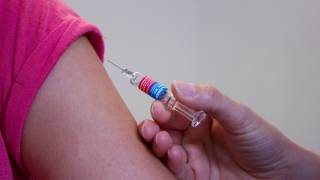Vaccine Injury Claims Increasing

According to the Health and Human Services (HHS), the United States has the safest, most effective vaccine supply system.
However, as with any medication, vaccines do cause side effects.
As of May 1st, 2017, 712 petitions for serious vaccine injury or death have been filed this year. This follows 1,120 petitions filed in 2016, which was the highest number of cases over the past ten years.
On average, it takes 2 to 3 years to adjudicate a petition after filing a claim.
In situations where there may have been a vaccine side effect, the National Vaccine Injury Compensation Program (VICP) allows individuals to file a petition for compensation.
The National Childhood Vaccine Injury Act of 1986 created VICP, which is a no-fault route for people injured by vaccines to win damages from a government trust fund financed by an excise tax on vaccines. This law preserved the right for vaccine injured persons to bring a lawsuit in the court system if federal compensation is denied or is not sufficient.
Yes, adults can be awarded vaccine injury compensation.
What does it mean to be awarded compensation? Being awarded compensation for a petition does not necessarily mean that the vaccine caused the alleged injury.
In fact, almost 80 percent of all compensation awarded by VICP is the result of a negotiated settlement between the parties and HHS.
Shoulder injury petitions to VICPs has surged as annual flu vaccinations have become routine. During 2012, the vaccine court published 15 decisions in which people alleged shoulder injuries related to the delivery of a flu shot.
By 2016, 492 of the published decisions mentioned a "shoulder injury. That trend may accelerate as HHS added shoulder injuries to a list of injuries for which a victim does not have to prove causation.
According to the Centers of Disease and Control (CDC), from 2006 to 2015 over 2.8 billion doses of covered vaccines were distributed in the U.S.
During this time period, 4,460 petitions were adjudicated by the Court, and of those cases, 2,911 people were compensated.
This means for every 1 million doses of vaccine distributed, only 1 individual was compensated by VICP.
Since 1988, 18,151 petitions have been filed with the VICP. Of those cases, 16,360 petitions have been adjudicated, with 5,416 of those determined to be compensable, while 10,944 were dismissed.
Total compensation paid over the life of the VICO program is approximately $3.6 billion.
What reasons might a petition result in a negotiated settlement?
- Consideration of prior U.S. Court of Federal Claims decisions; both parties decide to minimize risk of loss through settlement
- A desire to minimize the time and expense of litigating a case
- The desire to resolve a petition quickly
When a petition is resolved via a negotiated settlement between the parties, the settlement is not an admission by the United States or the Secretary of HHS that the vaccine caused the petitioner’s alleged injuries.
Moreover, in settled cases, the Court does not determine that the vaccine caused the injury.
Therefore, a settlement cannot be characterized as a decision by HHS or by the Court, that the vaccine caused a specific injury.
Our Trust Standards: Medical Advisory Committee
- Data & Statistics
- Vaccine Injury Compensation Data
- Vaccines on trial: U.S. court separates fact from fiction
- The National Childhood Vaccine Injury Act of 1986
- National Vaccine Injury Compensation Program: Revisions to the Vaccine Injury Table
- Vaccine Injury Table
- Whopping Vaccine Injury Payouts for US Fiscal Year 2017 Released
























